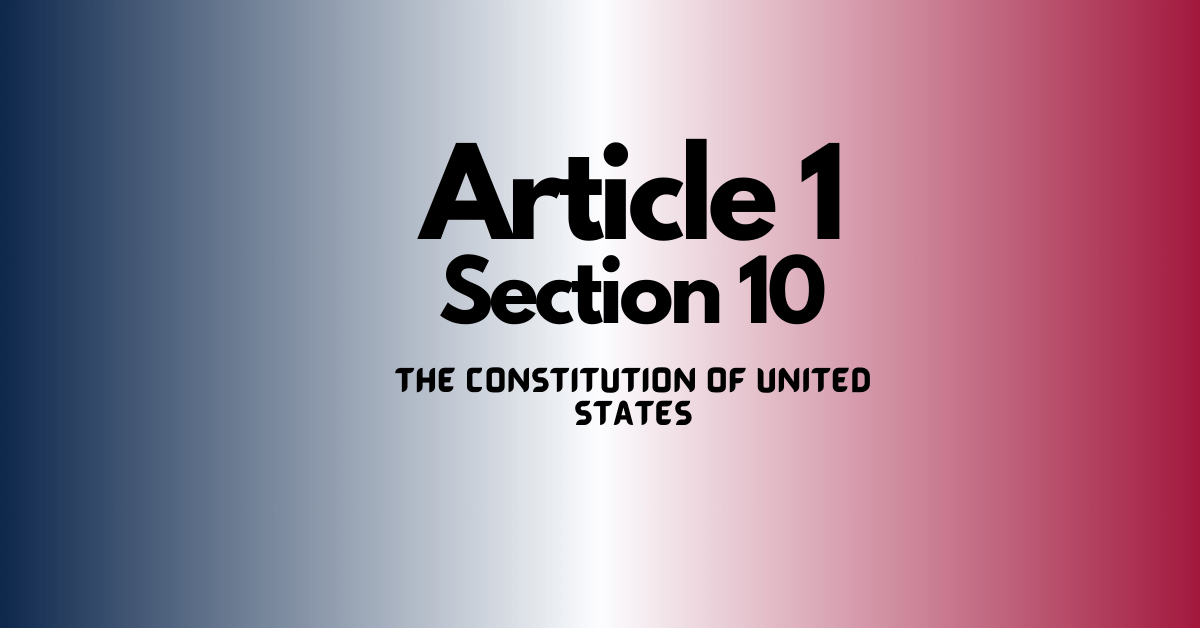Article 1 , Section 10 (Original text):
No State shall enter into any Treaty, Alliance, or Confederation; grant Letters of Marque and Reprisal; coin Money; emit Bills of Credit; make any Thing but gold and silver Coin a Tender in Payment of Debts; pass any Bill of Attainder, ex post facto Law, or Law impairing the Obligation of Contracts, or grant any Title of Nobility.
No State shall, without the Consent of the Congress, lay any Imposts or Duties on Imports or Exports, except what may be absolutely necessary for executing it’s inspection Laws: and the net Produce of all Duties and Imposts, laid by any State on Imports or Exports, shall be for the Use of the Treasury of the United States; and all such Laws shall be subject to the Revision and Controul of the Congress.
No State shall, without the Consent of Congress, lay any Duty of Tonnage, keep Troops, or Ships of War in time of Peace, enter into any Agreement or Compact with another State, or with a foreign Power, or engage in War, unless actually invaded, or in such imminent Danger as will not admit of delay.
Explanation:
These provisions outline the limitations on the powers of individual states, ensuring a unified approach to foreign relations, currency, commerce, and military matters within the United States.
Restrictions on State Powers
- Treaties, Alliances, and Confederations:
- States are prohibited from entering into any treaty, alliance, or confederation.
- Letters of Marque and Reprisal:
- States cannot grant letters of marque and reprisal.
- Coinage and Currency:
- States cannot coin money or emit bills of credit. They are also prohibited from making anything other than gold and silver coin a tender in payment of debts.
- Legislative Limitations:
- States cannot pass bills of attainder, ex post facto laws, or laws impairing the obligation of contracts. They are also prohibited from granting any title of nobility.
- Imposts and Duties:
- Without Congress’s consent, states cannot lay any impost or duty on imports or exports, except for what may be necessary for executing their inspection laws.
- The revenue generated from such duties must be for the use of the United States Treasury, and these laws are subject to Congress’s revision and control.
- Duties of Tonnage and Military Matters:
- States cannot, without Congress’s consent, lay any duty of tonnage, maintain troops or ships of war in times of peace, enter into agreements or compacts with other states or foreign powers, or engage in war unless actually invaded or facing imminent danger that cannot be delayed.
FEEL FREE TO ASK DOUBTS IN THE COMMENTS.
